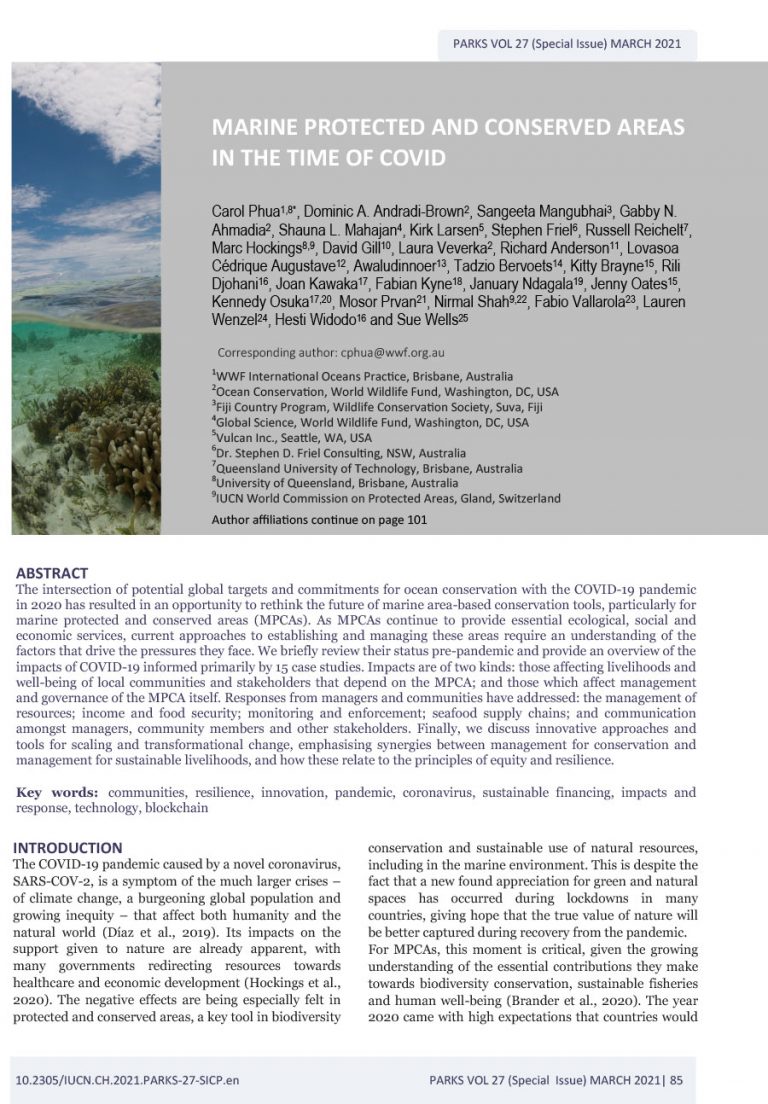Abstract
The intersection of potential global targets and commitments for ocean conservation with the COVID-19 pandemic in 2020 has resulted in an opportunity to rethink the future of marine area-based conservation tools, particularly for marine protected and conserved areas (MPCAs). As MPCAs continue to provide essential ecological, social and economic services, current approaches to establishing and managing these areas require an understanding of the factors that drive the pressures they face. We briefly review their status pre-pandemic and provide an overview of the impacts of COVID-19 informed primarily by 15 case studies. Impacts are of two kinds: those affecting livelihoods and well-being of local communities and stakeholders that depend on the MPCA; and those which affect management and governance of the MPCA itself. Responses from managers and communities have addressed: the management of resources; income and food security; monitoring and enforcement; seafood supply chains; and communication amongst managers, community members and other stakeholders. Finally, we discuss innovative approaches and tools for scaling and transformational change, emphasising synergies between management for conservation and management for sustainable livelihoods, and how these relate to the principles of equity and resilience.
Key words: communities, resilience, innovation, pandemic, coronavirus, sustainable financing, impacts and response, technology, blockchain

















